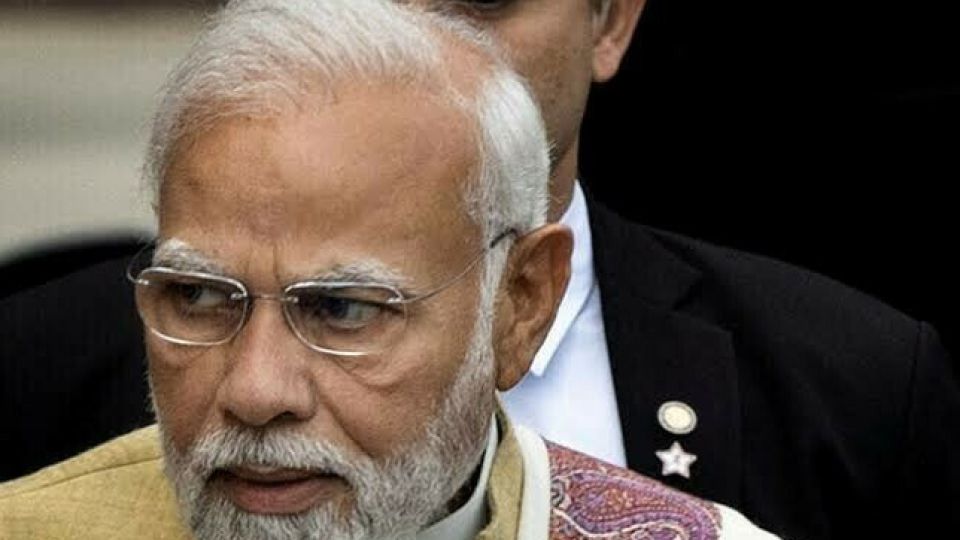June 7, 2024
ISLAMBAD – AS Indian Prime Minister Narendra Modi prepares for a third term in office — albeit with a significantly reduced majority — the dynamics of his coalition government and a shifting domestic landscape may force him to recalibrate his approach to relations with Pakistan, even though he would like to maintain a sense of continuity in his government’s external policies.
The BJP’s campaign promised a zero-tolerance approach to terrorism, subtly highlighting its uncompromising stance through references to the ‘2016 surgical strike’ and ’2019 airstrikes’, thereby signalling its firm position on Pakistan.
Initially, Pakistan was an uncharacteristically muted issue in this year’s campaign. But as the election drive gained momentum, the narrative shifted dramatically, with PM Modi and Home Minister Amit Shah increasingly invoking the spectre of their Western neighbour to discredit the opposition and bolster their claim of pursuing a robust national security agenda.
This strategy aligned with the BJP’s historic approach, which has consistently leveraged foreign policy and national security as key pillars, emphasising a strong response to external threats and promoting a nationalistic narrative that positions India as a regional leader and rising global power.
The foreign policy legacy of Mr Modi’s past two tenures is marked by assertiveness, a pro-US shift, and a tough stance on Pakistan and China. Looking ahead, he’ll likely maintain this course while also pursuing stronger ties with Iran and Russia and deeper cooperation with Gulf states, balancing regional muscle with strategic partnerships.
Future foreign policy
Rezaul H. Laskar, foreign affairs editor of the Hindustan Times, says, “In terms of foreign policy, and particularly the approach towards Pakistan, there will be more of continuity and no radical changes in the foreseeable future.”
Leading a potentially fragile coalition government, BJP may struggle to maintain its hardline stance on Pakistan, as it will need to accommodate the diverse views of its allies.
This could limit Mr Modi’s ability to make bold moves, especially regarding aggressive postures towards the neighbouring rival. As a result, the political dynamics may lead to a moderated foreign policy approach, potentially softening the aggressive stance that has defined a strong BJP government.
Abdul Basit, a former high commissioner to India, believes that PM Modi “will likely respond positively to Pakistan’s oft-repeated desire for the restoration of full diplomatic relations as well as coming to Pakistan for the long-pending 19th Saarc summit perhaps later this year or early next year. Prime ministers of the two countries may also meet on the margins of SCO summit in Russia in October this year”.
“In fact re-engagement without giving an inch on Kashmir will be projected as Modi’s victory,” Ambassador Basit opined.
China focus
Meanwhile, BJP’s internal dynamics could see influential figures like Amit Shah playing a significant role in decision-making, with an eye towards their own political careers in the post-Modi era.
This influence, however, could become a bone of contention among coalition partners, particularly regarding Amit Shah’s reappointment as home minister. Modi’s allies have already expressed reservations about Shah continuing in this role due to his policies targeting the opposition, which they believe did not go well with voters in recent elections.
China will, moreover, remain a central focus of India’s foreign policy for the foreseeable future, regardless of who holds office.
“The focus will continue to remain on China, which India now perceives as its biggest foreign policy challenge, and forging partnerships focused on the Indo-Pacific,” Mr Laskar said.
As the regional geopolitical landscape continues to shift, China’s growing influence among India’s neighbours is creating pressure points that may incentivise India to pursue a more stable relationship with Pakistan. This strategic shift could enable India to concentrate on more pressing concerns, particularly the simmering tensions along its northern border with China.
Communal issues
PM Modi will domestically have to face complex communal issues with a diminished grip on power, precluding the iron-fist approach of previous years. This change would allow political space for Muslims and other minorities, prompting him to pursue more inclusive engagement.
While this may soften earlier hardline policies, substantial reversals remain uncertain. His administration would have to navigate the communal sensitivities that have both driven and complicated its past governance, requiring careful balancing to maintain political stability and harmony.
In this situation, a less assertive stance on Pakistan could pave the way for an India-Pakistan dialogue and, potentially, even normalisation efforts, although long-standing issues like cross-border terrorism allegations and territorial dispute over Kashmir would still pose significant challenges to overcome.
Elections in India-held Kashmir, particularly the outcome in Baramulla constituency — where Engineer Sheikh Abdul Rashid triumphed over well-known figures like Omar Abdullah of the Jammu and Kashmir National Conference and Sajjad Gani Lone of the J&K Peoples Conference — should be instructive for the new government as they underscore significant local dissatisfaction.
Mr Rashid’s victory, despite being detained under the Unlawful Activities (Prevention) Act, signals a strong voter endorsement of figures who oppose what they see as the central government’s repressive policies. The electoral outcome in held Kashmir could potentially affect the delicate dynamics between India and Pakistan.
Therefore, given the historical context where tensions with Pakistan have often been leveraged to unify domestic support during unstable political periods, the prospect of a military crisis in the region cannot be dismissed lightly.
Mr Basit’s advice for Islamabad is to tread with utmost caution, lest it ends up further weakening its Kashmir policy.


